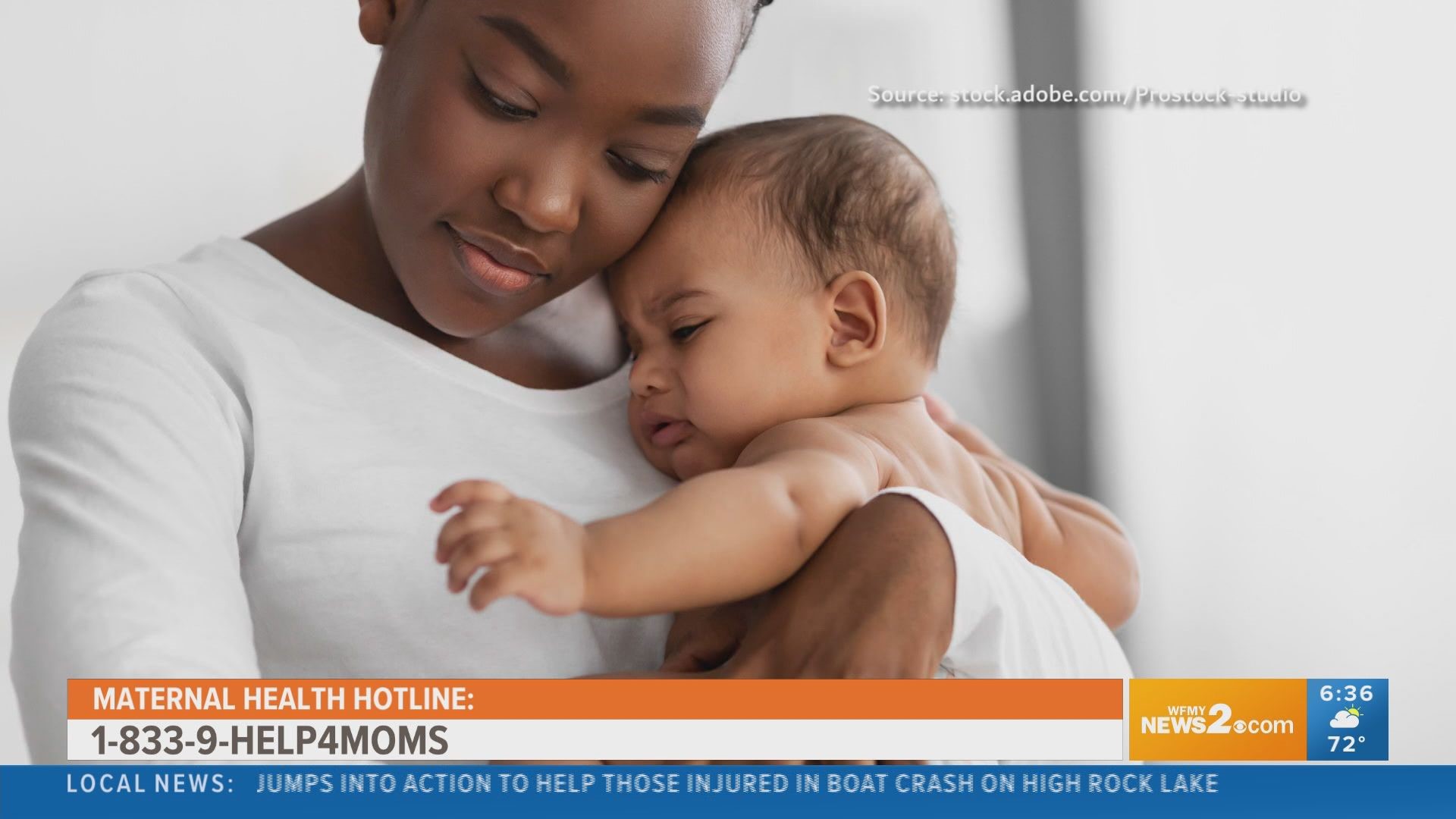GREENSBORO, N.C. — The U.S. Department of Health and Human Services launched a Maternal Mental Health Hotline in May to provide 24/7 free and confidential support to new and expecting moms. The hotline is accessible by phone or text at 1-833-9-HELP4MOMS (1-833-943-5746) in English and Spanish and is a lifeline for new and expecting moms who are experiencing mental health challenges.
According to the CDC, one in nine new mothers has postpartum depression and one in eight will have baby blues. Postpartum depression also affects 10% of fathers.
That's almost every new mom who will experience feelings of hopelessness, who might feel inadequate or unequipped to take care of their baby. It is a severe condition that can last more than a year postpartum.
Laura Shelton is the Perinatal Health Nurse Educator at Novant Health. She explained the difference between baby blues and PPD and when you should seek help.
“Symptoms of the baby blues can include mood spells, crying spells, anxiety, difficulty sleeping or sleeping too much,” Shelton said. “When those symptoms continue past two weeks and become worse then we're looking at that postpartum depression.”
Providers ask every new mom to fill out the Edinburg survey at her first postpartum appointment and when they bring their newborn to the pediatrician. The Edinburg is a series of questions asking moms if they’re experiencing PPD symptoms and to help diagnose it.
Several risk factors can lead to postpartum depression, including caring for multiples, or a baby who needs special care. Moms who have trouble breastfeeding, have difficulty delivering, or lack support can also increase their risk.
Shelton not only helps parents experiencing postpartum depression. She also suffered from it with both of her children.
"People are talking about it more, my goal is to decrease that stigma that comes along with mental health help as many new parents navigate the beginning of their parenting journey. I had postpartum depression with both of my kids and didn't speak up and I really wish that I had,” Shelton said.
Shelton said one of the best ways to work through postpartum depression is by talking through your feelings. Either with family, friends, or other parents who are in the same situation.
Novant Health has a free online postpartum support group that's open to any new parent looking to connect, discuss, or share their experiences and feelings.
“They meet other parents, they can troubleshoot feeding issues or sleep issues or relationship and support issues and that group really connects parents going through the same stage as you, and then when you have a happier parent you have a happier baby,” said Shelton.
A common misconception is that postpartum depression only affects moms during their first pregnancy. Shelton says you can experience it with one, all, or none of your babies.
Novant Health’s free online support group meets weekly via Zoom. You do not need a referral and it is open to any new parent up to 18 months postpartum no matter where you get your prenatal care, where you deliver, or where you live.
Send an email to Childbirtheducation@novanthealth.org to join the group.

